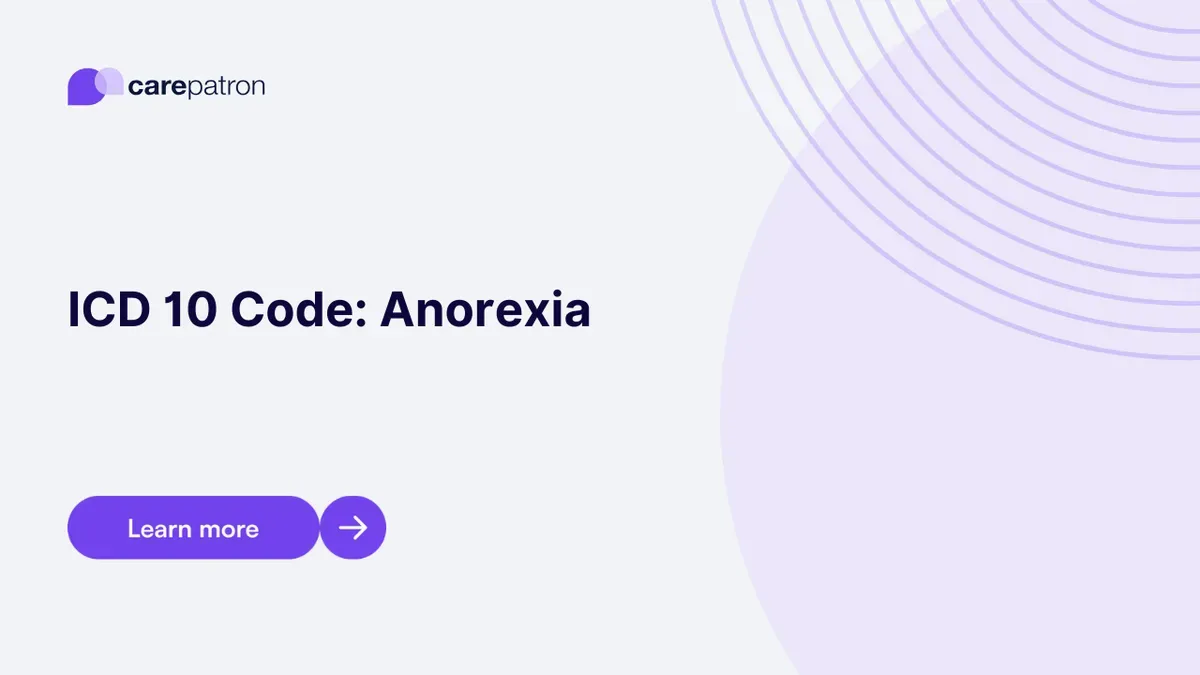
Anorexia ICD-10-CM Codes
Explore the 2023 ICD codes for Anorexia. Understand the codes, billability, and clinical relevance for this eating disorder characterized by self-starvation.
Use Code
Commonly asked questions
Anorexia can lead to numerous health issues, including heart problems, kidney failure, osteoporosis, and, in severe cases, death.
Treatment for anorexia involves a multidisciplinary approach, including medical care, nutritional counseling, and psychotherapy. In severe cases, hospitalization may be required.
While there's no guaranteed cure for anorexia, many individuals can recover with appropriate treatment and support. Early intervention and comprehensive care are crucial for recovery.
EHR and practice management software
Get started for free
*No credit card required
Free
$0/usd
Unlimited clients
Telehealth
1GB of storage
Client portal text
Automated billing and online payments
